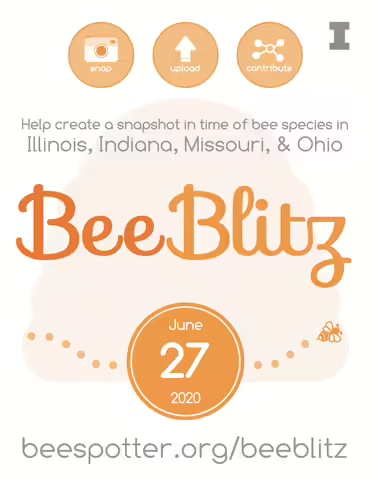DECATUR, Ill. — National Pollinator Week June 22 – 28 is an opportunity for individuals and families to provide important data on the health of Illinois' pollinator population. Thirteen years ago, the U.S. Senate’s unanimous approval and designation of a week as “National Pollinator Week” marked a step toward addressing the issue of declining pollinator populations.
University of Illinois Extension local foods and small farm educator Doug Gucker offers many ways individuals can help save pollinators. "Homeowners can plant vegetation plants, shrubs, native flowers, and trees that provide nectar and pollen throughout the growing season, from early spring until fall," Gucker says. "Protected areas of undisturbed soil can provide nesting areas for bees, including bumblebees."
Use of pesticides, herbicides, and insecticides, which are highly toxic to bees and other pollinators, should be limited, Gucker says.
The public is encouraged to participate in the annual "Bee Blitz" program, BeeSpotter, on June 27. The Illinois program increases awareness of native, diverse pollinators. On Saturday, the public is encouraged to visit gardens and parks to take photos of bees, then upload photos to the BeeSpotter.
BeeBlitz was developed from a BioBlitz activity which takes a snapshot in time of all of the flora and fauna biodiversity in a specific area. "During the BeeBlitz, we seek to know what species of honey and bumble bees exist on this specific day," Gucker says. "We encourage veteran and aspiring bee spotters alike to venture out on a nature walk and participate in the blitz."
Since its launch in 2007, BeeSpotter has monitored bee populations in parts of the Midwest using photographic data collected by bee spotter citizen scientists.
SOURCE: Doug Gucker, Educator, University of Illinois Extension
WRITER: Maria Lightner, Communications, University of Illinois Extension
